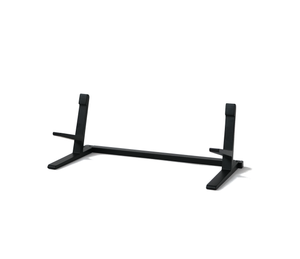Meta takes $40K, holds our business ransom
tl;dr: Meta charged my credit card $40K for advertising, somehow lost track of the money, and has now suspended our account unless we wire them $40K more.
When you’re running a small business, you always hear horror stories from fellow founders about dealing with large platform companies like Meta, Google, Amazon, and Apple. Depending on your business, working with these platforms ranges from “convenient” to “existentially necessary”.
In our case, Tidbyt is a very visual consumer product, making it a great fit for Instagram. Our potential customers are on Instagram and Facebook, so we really have to be there too. In fact, since launch, we’ve paid Meta literal millions of dollars for advertising on these platforms.
Given the size of our account, and the fact that I’m a former Facebook employee, we figured things would be fine — and they more or less have been. Ad performance has declined a bit, but hasn’t it for everyone? It also bothered me that we’ve never been assigned an account manager or given a phone number to call for issues, but that seems to be an extremely standard experience as well.
Once our account got large enough, Meta switched us to monthly invoicing and we continued to have a good working relationship for a couple years. Until…
Pay by credit card? Sure, why not.
Some time last year, Meta added the option to pay invoices by credit card. It’s not rocket science, you just click “Pay” in their billing portal and enter your credit card. It gets charged.
We tried the credit card payment option for the first time last month. My card was charged, the invoice state updated to “Processing”. Strangely, the portal didn’t provide a PDF receipt or anything, but Meta’s ad platform is known to be fairly buggy.
A little while later, we got an email from Meta with a vaguely scary message:
Your account is 16 days past due and is at risk of being placed on a collections hold. Payment instructions are included at the bottom of each invoice. If you've recently paid this balance, please send payment remittance advice to payment@fb.com so we can make sure to credit your account promptly.
Bummer, but probably just a mix up? Checking my card, it had definitely been charged, and the charge had even been finalized. We responded with a screenshot of the Amex statement and once again figured that was it.
But 8 days later, we got another email from a “collections analyst”, and it became pretty clear that the collections analyst didn’t even realize that credit card payments were possible. They asked for things like an “MT103 document” and “payment advise document”. Those are the kinds of receipts you get when you send a wire transfer from a bank, but obviously we didn’t have them since I paid via credit card through Meta’s own website.
This dance continued about once a week, with a new email from Meta, promises from the analyst to call us by phone (they never did), and a new response from us with the credit card statement. By this point we’d actually even settled the credit card bill with Amex.
The last we’d heard from Meta was a week ago, and I sent over the final PDF transaction statement from Amex.

Ironic how the credit card statement includes a link to metacareers.com 🙃 And nope, that phone number doesn’t go anywhere.
I know people at Meta, right?
Fearing the worst, I personally started reaching out to alumni and employees at Facebook. Like come on, I worked there for a couple years, y’all know me and we can get this figured out, right? Definitely nepotism, but when the entire business is on the line, I’m willing to pull every available lever.
Sadly the only actionable advice we got was to open a case with Meta’s business support. I did that, and the chat support rep was clearly not able to deal with this kind of issue. The rep gave me a link and asked me to fill out a support form to reach support… but it was the exact same form I’d just filled out to start a chat with them.
When that didn’t work, they asked me to file a bug/feedback report. I filed the bug report, but those reports clearly state “we can't personally respond to everyone”. Totally the wrong channel.

And of course, the support case I originally opened is now closed as “completed”.
Your Meta ad account has been disabled.
This morning at 3 AM, we got an email saying that our account has been disabled:
Dear Tidbyt, Inc.,
Your Meta ad account was placed on a collections hold for overdue invoices totaling USD 37,216.17.
Your account has been disabled and is currently inactive.
To reactive your credit line, we must receive payment for the past due balance.
I responded one more time, and got the same response from the same collections analyst:
We apologize for the inconvenience caused, upon checking from our side we haven't received the payment that you have made via Credit Card. We request you check with your bank side and give me an update on the payment status.
But again, there’s nothing more to check on our end since we paid through Meta’s own portal. When we paid via credit card, Meta’s payment processor charged the card for $37K and would have sent that money to Meta’s bank account.
So Meta is sitting on $37K, but has disabled our account because they can’t seem to be bothered to find it. If we want to reactivate our account, we have to double-pay and directly wire transfer them another $37K. Otherwise we’re dead in the water.
This kills the business.
I get the inherent risk of relying on a third-party platform for a large chunk of your business, I really do. It keeps me up at night and we’ve definitely invested in alternatives where possible.
But in a lot of ways, Meta is the marketplace. Running a consumer retail business without an Instagram presence… it’s kind of like trying to build a consumer phone app without working with Apple and Google. Sure, you could try to reinvent the entire ecosystem and marketplace with unlimited time & money, but even Amazon failed when they tried that.
What makes it even worse for us is that we base our manufacturing and inventory on sales forecasts. It’s only been 12 hours since our Instagram and Facebook ad accounts were blipped, but we’re already seeing a drop in traffic and sales. We’ll certainly try to course correct, but it’s going to be very, very difficult.
“Just do a chargeback.”
One advantage of having paid with a credit card is that we could dispute the charge with Amex. This is a nuclear option since it has a number of risks:
- Will we win the dispute? Once we dispute the charge, the bank has months to investigate and render a final decision. There’s always a chance that they could side with Meta, and then we’d never see that money back. In the meantime we would still have to pay Meta another $37K to reactivate the account.
- Will Meta permanently close our accounts? If we file a chargeback, then $37K will immediately be withdrawn by the credit card processor from Meta’s account. I promise you, somebody at Meta is going to notice $40K leaving their account, and I have no idea how they would respond. They could permanently close our ad accounts, suspend our organic accounts, or even suspend our personal accounts. No way to know.
Fire and motion.
Over 20 years ago, Joel Spolsky wrote a great essay that’s always stuck with me, Fire And Motion. In it, he talks about “cover fire”:
If you are moving forward, writing code and fixing bugs constantly, time is on your side. Watch out when your competition fires at you. Do they just want to force you to keep busy reacting to their volleys, so you can’t move forward?
When large platform companies throw us for loops like these, it’s a form of cover fire. Instead of spending the day moving our company forward, I’m instead dealing with this curveball that Meta has thrown at us.
Obviously, there isn’t somebody at Meta who is intentionally trying to make our lives difficult because they see Tidbyt as some sort of strategic threat (lol). But organizations will eventually evolve to reproduce the conditions that favor their continued existence and growth.
When Meta has a payments issue that isn’t anyone’s priority to solve, when Google Cloud decides to deprecate another product with short notice, when Apple throws out new App Store rules… these are all cover fire. Even if the underlying intentions are genuine, the effect is that the rest of us spend more time reacting and less time innovating.
I’m not sure what the answer is, but man, do I really wish I hadn’t tried to pay that invoice with a credit card.


